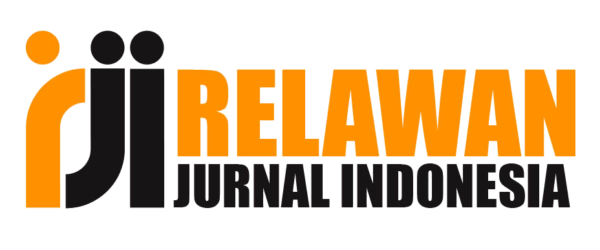Penerapan Model Virtual Conceptual Change Laboratory (VCCLAB) Untuk Meremediasi Miskonsepsi Siswa Pada Materi Tekanan Hidrostatik
Abstract
Penelitian ini bertujuan untuk mendapatkan gambaran tentang penerapan model Virtual Conceptual Change Laboratory (VCCLab) dalam memfasilitasi terjadinya perubahan konsepsi pada pengajaran remedial terkait konsep tekanan hidrostatik. Model VCCLab ini bisa juga dijadikan solusi untuk mengatasi kendala praktikum di era pandemi ini. Keadaan konsepsi peserta didik SMA sebelum dan setelah penerapan model VCCLab didiagnosis dengan menggunakan tes konsepsi format four-tier test. Penelitian ini dilakukan dengan menggunakan metode pre-experiment dengan desain one group pretest-posttest. Subjek penelitian terdiri dari 36 siswa kelas XI MIPA SMA Negeri 2 Lembang, dimana subjek penelitian merupakan peserta didik yang telah mendapatkan pembelajaran dan yang masih mengalami miskonsepsinya sebanyak 32 orang. Hasil penelitian menunjukkan bahwa jumlah peserta didik yang mengalami perubahan konsepsi setelah mengikuti tahapan-tahapan model VCCLab adalah 90% (29 orang) yang mengalami remediasi miskonsepsi dan 10% (3 orang) lainnya masih mengalami miskonsepsi. Berdasarkan hasil tersebut penerapan model VCCLab mampu meremediasi miskonsepsi peserta didik terkait konsep tekanan hidrostatik.
Kata kunci : Kegiatan laboratorium, Miskonsepsi, Model VCCLab, Pembelajaran remedial
ABSTRACT
This study aims to obtain an overview of the application of the Virtual Conceptual Change Laboratory (VCCLab) model in facilitating a change in conception in remedial teaching related to the concept of hydrostatic pressure. This VCCLab model can also be used as a solution to overcome practical problems in this pandemic era. High school students' conception conditions before and after the application of the VCCLab model were diagnosed using a four-tier test format conception test. This research was conducted using a pre-experimental method with a one group pretest-posttest design. The research subjects consisted of 36 students of class XI MIPA SMA Negeri 2 Lembang, where the research subjects were 32 students who had learned and who still experienced misconceptions. The results showed that the number of students who experienced a change in conception after following the stages of the VCCLab model was 90% (29 people) who experienced misconception remediation and 10% (3 people) still experienced misconceptions. Based on these results, the application of the VCCLab model was able to remediate students' misconceptions regarding the concept of hydrostatic pressure.
Keywords : Laboratory activities, Misconception, VCCLab Model, Remedial teaching
Full Text:
PDF (Bahasa Indonesia)References
Suhandi, A., Hermita, N., Samsudin, A., Maftuh, B., Costu, B., 2017. Effectiveness of Visual Multimedia Supported Conceptual Change Texts on Overcoming Students’ Misconception About Boiling Concept, The Turkish Online Journal of Educational Technology, Special Issue for INTE 2017.
Cetin, G., Ertepinar, H., Geban, O. 2015. Effect of conceptual change textbased instruction on ecology, attitudes toward biology and environment. Educational Research Educations, Vol 10(3), p. 259-273.
Ozkan G and Selcuk G S.2016. Facilitating conceptual change in students’ understanding of concepts related to pressure. European J. Phys. 37 p 1–20.
Saputra, O., Setiawan, A., & Rusdiana, D. 2019. Identification of student misconception about static fluid. Journal of Physics: Conference Series, 1157, (3).
Cahyani, H., Samsudin, A., Tarigan, DE., Kaniawati, I., Suhendi, E., Suyana, I., Danawan, A. 2019. Identifikasi miskonsepsi fluida statis pada siswa SMA menggunakan four-tier diagnostic test, Prosising Seminar Nasional Fisika 5.0 (114-124).
Hynd, C. R., McNish, M. M., Qian, G., Keith, M., Lay, K. 2015. Learning counterintuitive physics concept: the effect of text and educational environment. Retrievedfromcurry.virginia.edu/go/clic/nrrc/phys_r16.htm.
Samsudin, A., dkk. 2015. Fields Conceptual Change Inventory: A Diagnostic Test Instrument On The Electric Field And Magnetic Field To Diagnose Student’s Conceptions. International Journal Of Industrial Electronics And Electrical Engineering, 3, (12), 74- 77.
Surtiana, Y., Suhandi, A., Samsudin, A., Siahaan, P., Setiawan, W.2020. The preliminary study of the application of the conceptual change laboratory (CC-Lab) for overcoming high school students misconception related to the concept of floating, drifting and sinking, Journal of Physics: Conference series 1521 (2020) 022018.
Suhandi, A., Surtiana, Y., Husnah, I., Setiawan, W., Siahaan, P., Samsudin, A., Costu, B. 2020. Fostering High School Students' Misconception about Boiling Concept Using Conceptual Change Laboratory (CCLab) Activity, Universal Journal of Educational Research 8(6): 2211-2217.
Putri, K. L., Suhandi, A., Surtiana, Y. The Development of Virtual Conceptual Change Laboratory (VCCLab) for Conception Reconstruction through Lab Virtual Activity. Article International Conference on Mathematics and Science Education (ICMScE), Bandung, UPI.2020.
Suhandi, A., Samsudin, A., Suhendi, E., Hermita, N., Nur Syamsiah, E., Costu, B. 2020. Facilitating Conceptual Changes of High School Students regarding Concepts in Static Electricity and DC Circuits through the Use of VMSCDCCText. Universal Journal of Educational Research, Vol.8(3), pp 815-822, 2020. DOI: 10.13189/ujer.2020.080312.
DOI: https://doi.org/10.17509/wapfi.v6i1.32451
Refbacks
- There are currently no refbacks.
Copyright (c) 2021 Yunina Surtiana, Andi Suhandi, KL Putri, Wawan Setiawan, Parsaoran Siahaan, Achmad Samsudin

This work is licensed under a Creative Commons Attribution-ShareAlike 4.0 International License.
The Journal Wahana Pendidikan Fisika http://ejournal.upi.edu/index.php/WapFi/ is licensed under a Creative Commons Attribution-ShareAlike 4.0 International License
The Journal WaPFi (Wahana Pendidikan Fisika).
All rights reserverd. pISSN 2338-1027 eISSN 2685-4414
Copyright © Faculty of Mathematics and Science Education (FPMIPA) Universitas Pendidikan Indonesia (UPI)











